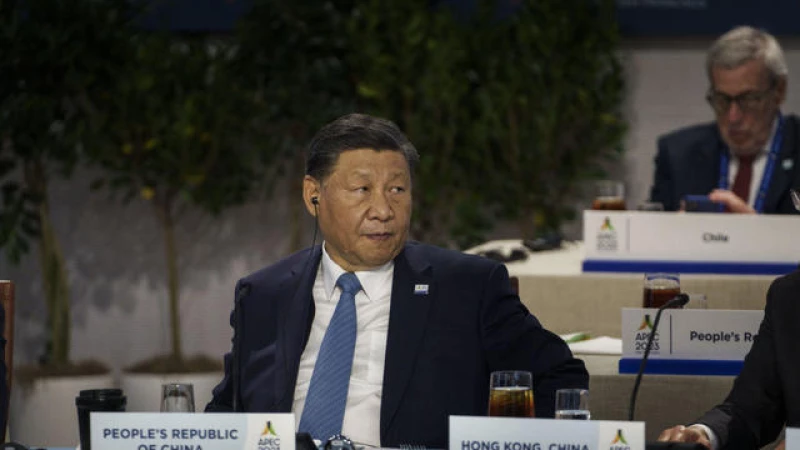China Intensifies Efforts to Influence US Midterm Elections
Washington — China intensified its efforts to influence political processes in the United States during the 2022 midterm elections, according to a newly released declassified assessment, which suggested Beijing may perceive a growing benefit to exploiting divisions in American society.
The 21-page assessment revealed a shift in Beijing's approach towards U.S. elections. Unlike the previous intelligence assessment after the 2020 presidential election, which found that China refrained from deploying interference efforts, this new assessment indicates that China actively engaged in influence efforts to potentially change the outcome of the 2022 US midterm elections.
The findings highlight the risks China is willing to take to meddle in American politics. The assessment suggests that China's motivation to exploit divisions in American society has grown, indicating a strategic shift in Beijing's calculus regarding U.S. elections.
Click here to read the full 21-page assessment.
According to a recent analysis by the ODNI, Beijing may have been more aggressive in 2022 due to their belief that they were facing less scrutiny during the midterms. Additionally, Chinese officials did not anticipate severe retaliation from the current administration, as they had feared in 2020.
The analysis also revealed that Chinese officials viewed the exploitation of divisive issues such as abortion and gun control, which gained prominence during the 2018 races, as an opportunity to depict the American democratic model as "chaotic, ineffective, and unrepresentative."
The classified midterm assessment, previously presented to Congress, also concluded that the Russian government attempted to undermine support for Ukraine by denigrating the Democratic Party before the elections. This was primarily achieved through the use of social media influence tactics.
Foreign Actors Utilize Proxy Websites and Social Media Influencers to Influence Political Narratives
Recent warnings from U.S. officials and private companies reveal that various foreign actors, including Russia, Iran, and China, have expanded their tactics to include the use of proxy websites and social media influencers to manipulate political narratives.
A partially redacted section of an assessment conducted by the intelligence community states, "While the activity we detected remained below the level we expect to observe during presidential election years, the [intelligence community] identified a diverse and growing group of foreign actors... engaging in such operations, including China's greater willingness to conduct election influence activities than in past cycles."
American officials and cybersecurity experts anticipate that multiple countries will employ increasingly sophisticated influence tactics leading up to the 2024 U.S. presidential election, which they believe will significantly impact global conflicts. According to a Microsoft analysis, these influence efforts are likely to target different online platforms compared to those utilized in the 2016 and 2020 elections.







